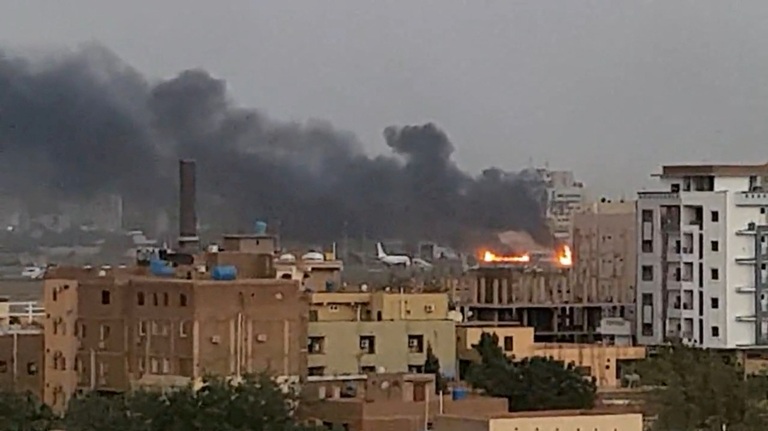Sudan at risk of becoming safe haven for regional turmoil, warns expert
May 26, 2023 (JUBA) – Majak D’Agoot, former deputy chief of the National Intelligence and Security Services of Sudan, has raised concerns that Sudan could become a safe haven for various isolated zones of conflict in the region if immediate action is not taken to address the escalating situation.
D’Agoot warned that the collapse of Sudan into anarchy could connect turmoil-ridden areas from Gaza to Yemen, Somalia, Libya, and across the Sahel and sub-Saharan African countries, ultimately affecting regional and international security.
The outbreak of fighting on April 15 between the Sudan Armed Forces (SAF) and the Rapid Support Forces (RSF) has aggravated the situation. The conflict emerged from disagreements over security reforms, particularly the integration of the RSF into the government’s armed forces. General Abdel Fattah al-Burhan and General Mohamed Hamdan Daglo, known as Hemetti, who were once allies, orchestrated a coup in October 2021, derailing the fragile transition to civilian rule initiated by the popular revolution that led to the ousting of former President Omar Al-Bashir in 2019.
Experts emphasize the geostrategic significance of Sudan, which makes its stability crucial for the international community. Situated at the intersection of the Arab and African worlds, Sudan has a coastline of 853 km along the Red Sea, a major route for global trade. Furthermore, Sudan’s location at the confluence of the Blue Nile and White Nile rivers impacts Egypt’s water security. The country also possesses significant gold mines and shares borders with neighbouring states experiencing internal strife and fragility.
D’Agoot, currently serving as a Visiting Senior Research Fellow at the African Leadership Centre of King’s College, University of London, highlighted the potential for the conflict in Sudan to be internationalized.
He noted the vested interests of regional countries and Western powers, who may support the warring parties to gain influence in the Red Sea area and across the Horn of Africa, Sahel, and sub-Saharan regions. The expert emphasized that different forces could align themselves with the conflicting parties, leading to an unpredictable and potentially internationalized conflict.
The ongoing crisis in Sudan poses a significant challenge to regional security and stability, potentially resulting in a scramble for control among Western powers and regional actors. Countries like Israel, Turkey, Iran, Russia, and the United Arab Emirates have shown interest in expanding their influence in the region.
D’Agoot emphasized the complexity of the situation, with the modes of operation of various actors remaining unpredictable.
Sudan has a troubled history, characterized by civil wars, coups, and instability since gaining independence in 1956. The country’s vast landscape and diverse ethnic, linguistic, and tribal differences have contributed to its governance challenges.
As Sudan stands on the brink of further turmoil, urgent action and international engagement are needed to prevent the country from becoming a hotbed for exacerbating the conflicts and wars plaguing the region.
“The situation requires a concerted effort to promote peace, stability, and effective governance, not only for the well-being of Sudan but also to safeguard regional and international security,” he stressed.
(ST)

